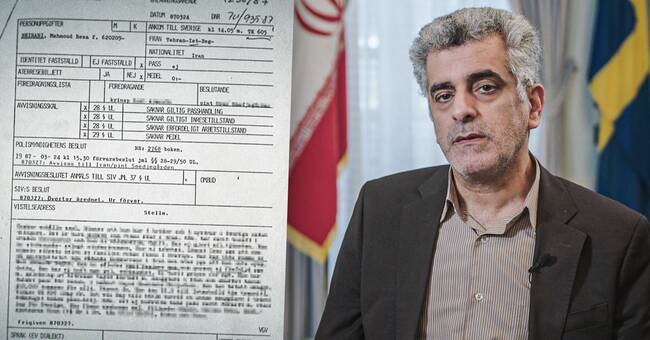Assignment review has told about Mahmoud Reza Beirani who would have been deported to Iran 22 years ago after being convicted of a serious drug crime in Sweden.
The deportation failed because Iran refused to let him into the country without an ID document.
Since then, he has lived in Sweden, alongside society.
Swedish authorities have tried to get Beirani's identity confirmed by Iran in order to carry out the deportation - without success.
Despite the fact that Swedish police have given the Iranian embassy photos, fingerprints, family information and Beirani's mother's ID card.
"We would never force anyone"
When Assignment Review receives an interview with the Iranian Embassy in September this year, they suddenly announce that the identity has now been established.
Why has it taken 22 years?
- Because no one has been interested.
And the important thing is: He should voluntarily decide to go to Iran.
We would never force anyone to go to Iran, says Mohammad Reza Nili, head of the consular unit at the Iranian embassy.
Not all countries have this principle, why does Iran have to return voluntarily?
- Because we respect people's will.
Do you expect us to handcuff Iranian citizens and bring them to Iran?
And you complain that we do not respect human rights.
Drug offenses can be punished with death
Mahmoud Reza Beirani came to Sweden in March 1987 without ID documents and received a permanent residence permit in October of the same year.
During the deportation attempt in 1998, he was benevolent in returning to Iran.
He's not anymore.
- I will say no, because I do not want to go home.
This is my home.
This is my homeland.
I have lived here for 34 years.
I grew up here, says Mahmoud Reza Beirani.
Beirani says he has no connection to Iran and only has a few distant relatives left.
He is worried about what might happen if the authorities, in a country where a serious drug crime can be punished with death and torture of prisoners occur, are told that he once sold heroin in Sweden.

